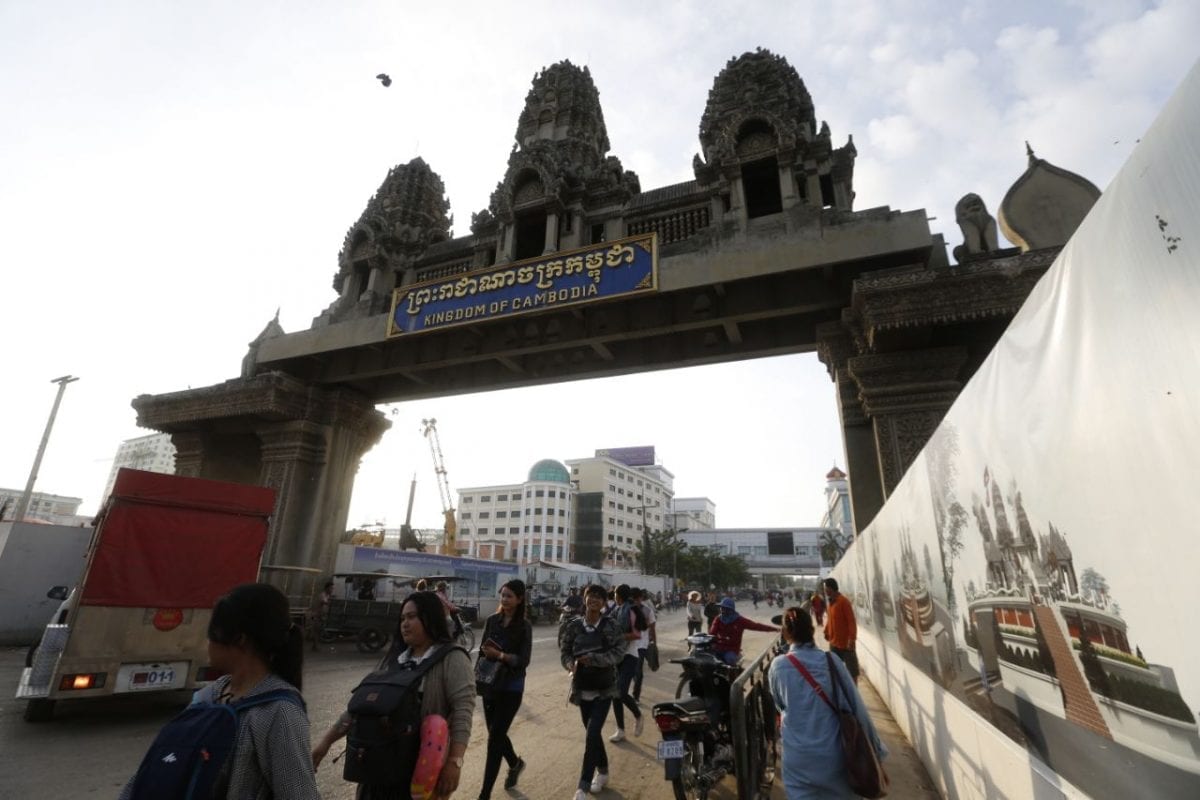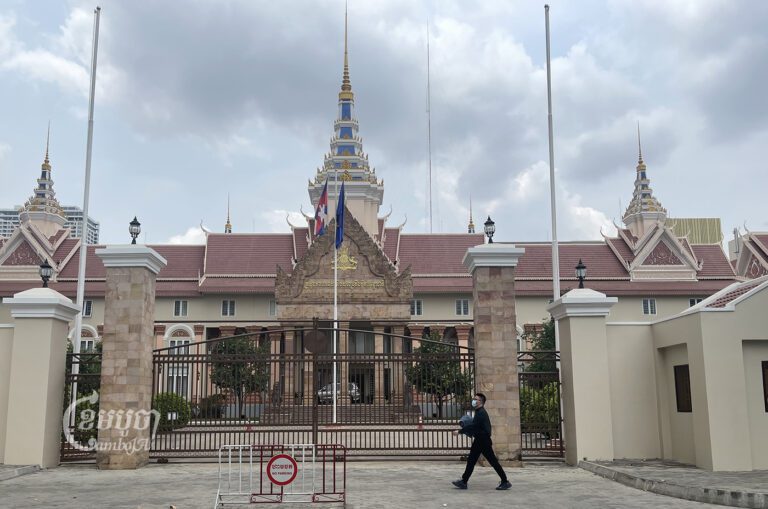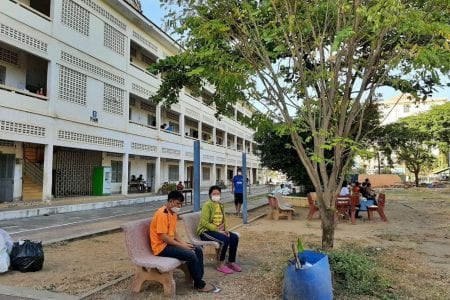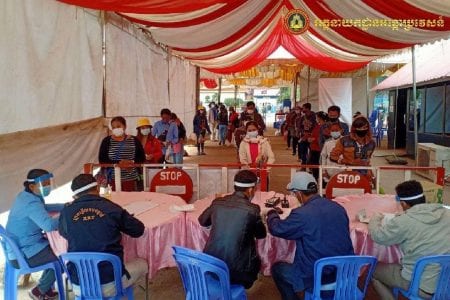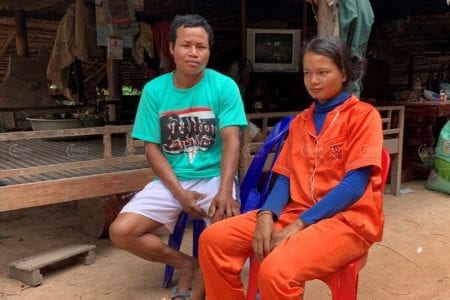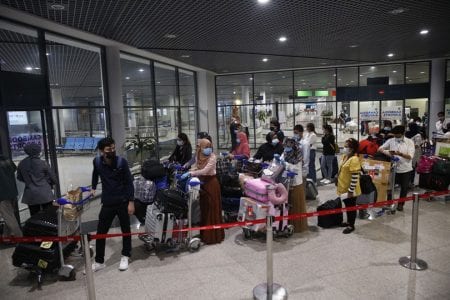The number of Cambodian workers migrating abroad declined by 80 percent last year, the Labor Ministry’s annual report says — though spokesman Heng Sour rejected the comparison that was made in his ministry’s report.
According to the report, released last month, Cambodian workers who migrated abroad dropped from 342,154 in 2018 to 68,040 last year, with a printed table noting an 80.1 percent decrease.
Most workers left for Thailand, at 57,823 migrants, followed by 5,938 to South Korea and 3,945 to Japan, the report says.
Sour, however, disputed the figures when questioned by a reporter, first questioning the calculation of the percentage change and later claiming that the 2018 figure measured total overseas workers rather than the number who migrated that year.
The International Labor Organization says more than 1 million Cambodians live as migrant workers overseas, while the National Committee for Counter Trafficking reported 1.8 million documented and undocumented migrant workers in 2018, according to the Khmer Times.
Agencies helping Cambodians find work abroad said they had observed at least some decline in migrant numbers.
Lim Senghong, general manager at Human Power, which sends Cambodians to Japan to work in agriculture and manufacturing, said there was a steep drop in demand for Cambodian workers in Japan.
“The truth is not that Cambodians don’t want to go, but the employers don’t want to choose Cambodian workers,” Senghong said.
Cambodian workers frequently resist returning to Cambodia when their work terms are finished, instead remaining in Japan illegally, he said.
“It is difficult for them to return to work in Japan again, so they escape and move to work at another place,” he said. This made it harder for future Cambodian workers to be accepted into Japan, he said.
Senghong estimated that out of 5,000 Cambodian migrants, as many as 3,000 end up staying illegally instead of returning home. They end up on a blacklist and lose their rights to proper medical treatment, he said.
The owner of Philimore, which sends migrants to Japan, Thailand and Singapore, said an improving domestic job market and rising stigma against those who migrate appeared to also be contributing to a decline.
“In Cambodia those who work outside receive insults as working as servants for others,” said Pheakdey, who declined to give his family name because he also works at the ministry.


